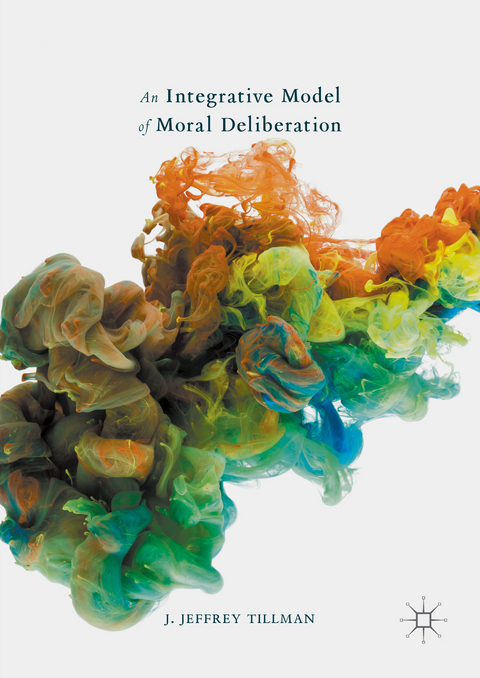
An Integrative Model of Moral Deliberation
Palgrave Macmillan (Verlag)
978-1-137-49021-6 (ISBN)
An Integrative Model of Moral Deliberation maintains that current models of moral deliberation do not effectively deal with contemporary moral complexity because they are based on an inadequate theory of moral cognition. Drawing on research in neuroscience, evolutionary psychology, social theory, and dual process cognitive theory and on the work of William James, this book develops a theory of moral cognition which provides a major role for aesthetic sensibilities and upon this theory develops a robust model of moral deliberation. This model portrays moral deliberation as a back and forth movement between intuitive and analytic cognitions, which constructs narrative scenarios and then assesses and revises them according to aesthetic sensibilities.
J. Jeffrey Tillman is Professor of Philosophy and Religion and Director of Graduate Studies at the Wichita Falls Campus of Wayland Baptist University, Texas, US
1—The Problems of Contemporary Moral Deliberation.- Five Styles of Moral Deliberation.- An Inadequate Model of Human Cognition.- 2-Human Embodiment and Moral Deliberation.- Stumbling Over Embodiment.- Evolutionary Theory and Humanity.- Brain Structure and Brain Function.- Neurotransmitters--Rewards And Aversions.- Emotion.- Non-Conscious Cognition.- Fundamental.- Routines of Survival.- Embodiment and Ethics.- 3-Human Sociability and Moral Deliberation.- The Ability to be Social.- The Dynamics of Human Socialization.- Evolution and Social Groups.- Social Deliberation about Ethics.- 4-Dual Process Theories and Moral Deliberation.- History of Decision Making Theory.- Dual Process Theories of Cognition.- Dual Process Theory and Moral Decision Making.- The Problems of Current Dual Process Moral Theory.- 5-Type 2 Moral Cognition.- Deductive Reasoning.- Analysis.- Induction.- Coherence-Based Reasoning.- Assessment of Type 2 Moral Reasoning.- 6-Type 1 Moral Cognition.- of Type 1 Processing.- William James and Type 1 Cognition.- A Jamesian Model of Moral Cognition.- Aesthetic Moral Cognition.- 7-Narrative And Moral Deliberation.- Type 2 Processes and Narrative Interpretation.- Type 2 Narrative and Applied Ethics.- Type 1 Narrative Construction and Interpretation.- Type 1 Moral Deliberation Using Narratives.- 8-- Dual Processes Interacting in Moral Deliberation.- Reflective Equilibrium.- Perceptual Equilibrium.- William James, Conceptual Translation, and the Mediating Attitude.- A Dual Process Model of Moral Deliberation.- An Abbreviated Illustration of the Model.- The Importance of Aesthetic Sensibilities.- 9-Conclusion.- Endnotes.- Selected Bibliography.- Index.
| Erscheinungsdatum | 02.04.2016 |
|---|---|
| Zusatzinfo | 3 Illustrations, black and white; IX, 235 p. 3 illus. |
| Verlagsort | Basingstoke |
| Sprache | englisch |
| Maße | 148 x 210 mm |
| Themenwelt | Geisteswissenschaften ► Philosophie ► Allgemeines / Lexika |
| Geisteswissenschaften ► Philosophie ► Ethik | |
| Geisteswissenschaften ► Philosophie ► Philosophie des Mittelalters | |
| Geisteswissenschaften ► Psychologie ► Biopsychologie / Neurowissenschaften | |
| Schlagworte | Aesthetics • Applied Ethics • Decision Making • Decision Theory • Dual process theory • ethical deliberation |
| ISBN-10 | 1-137-49021-7 / 1137490217 |
| ISBN-13 | 978-1-137-49021-6 / 9781137490216 |
| Zustand | Neuware |
| Informationen gemäß Produktsicherheitsverordnung (GPSR) | |
| Haben Sie eine Frage zum Produkt? |
aus dem Bereich


